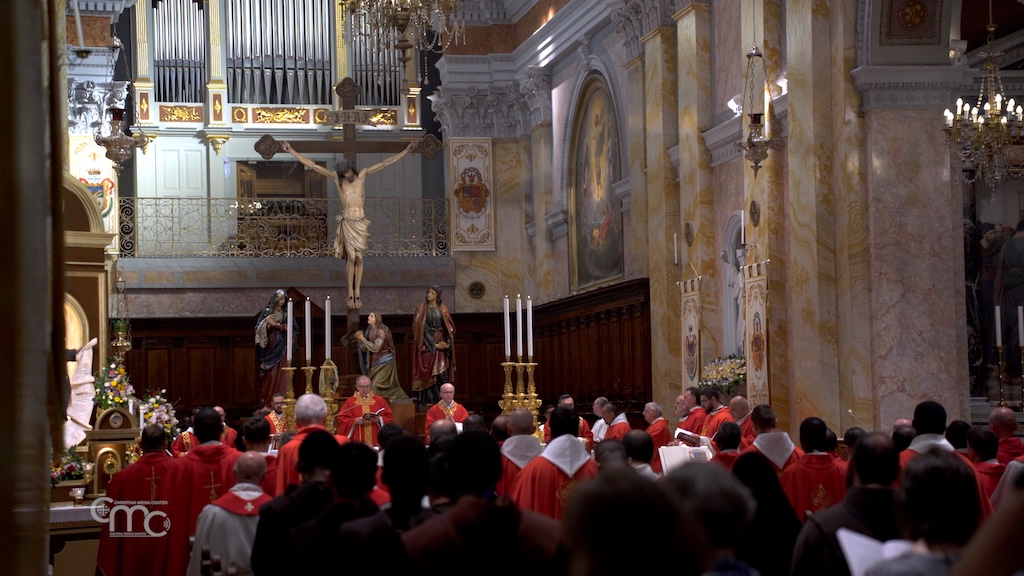
With a solemn Eucharistic celebration in the Church of St. Saviour, the academic community of the Studium Biblicum Franciscanum and the Studium Theologicum Hierosolymitanum inaugurated the new academic year 2025-2026.
The liturgy was presided over by Br. Francesco Ielpo, custos of the Holy Land, who in his homily offered a profound reflection on the Word of the day, inviting students and professors to live study as a journey of search and fraternity.
The Studium Biblicum Franciscanum, founded in 1924, represents one of the oldest and most prestigious institutions dedicated to the scientific study of Sacred Scripture and biblical archaeology. Linked to the Custody of the Holy Land, it has for a century promoted the knowledge of the Bible in the very places where it was born, through research, teaching, and the formation of scholars from all over the world.
The Studium Theologicum Hierosolymitanum, later established as a center of theological formation for friars and religious in the Holy Land, offers a place of reflection where theology meets the concrete experience of the Holy Places and the interreligious dialogue that characterizes the ecclesial life of Jerusalem.
Together, the two institutions embody the Franciscan mission of uniting faith, science, and witness, at the service of the Word of God and universal fraternity.
In his homily, Br. Francesco Ielpo commented on the readings of the day, connecting them to the academic path that begins.
Starting from the dialogue between Jesus and the doctor of the law, the custos emphasized that the search for truth cannot be reduced to a purely intellectual exercise, but must lead to a transformation of the heart and of the gaze.
"Jesus does not simply answer the question," he recalled, "but often transforms it. His answers are broader, deeper, more demanding. So too the life of the scholar and the teacher is called to a continual widening of the gaze."
Addressing the students, Br. Ielpo encouraged them not to fear questions, to keep alive curiosity and the thirst for truth:
"Do not tire of asking questions! Even the wrong questions can open paths of truth."
To the professors he proposed the pedagogical example of Jesus, who accompanies and stimulates the inner search of those who listen to him:
"Learning is not the transmission of notions, but a shared journey. You are called to walk beside your students, with patience and trust."
Reflecting on the parable of the Good Samaritan, the custos emphasized the question that runs through history and remains today more urgent than ever, especially in the Holy Land: "Who is my neighbor?"
"The neighbor," he said, "is not defined by blood, religion, or law, but by compassion. He is neighbor who stops, who bends down, who takes care."
The custos stressed that authentic knowledge, even academic, cannot be separated from compassion and responsibility toward reality:
"True knowledge cannot be separated from compassion. Only those who allow themselves to be touched by suffering truly understand."
At the end of the celebration, the academic community entrusted the new year of study and research to the Lord, asking for "intelligent and compassionate hearts, capable of seeking truth not to possess it, but to serve it; not to dominate, but to build fraternity."
In the heart of Jerusalem, the city where the Word became history, the Studium Biblicum Franciscanum and the Studium Theologicum Hierosolymitanum continue to offer a space of dialogue and research, where faith and science meet to build bridges of understanding and peace.
Francesco Guaraldi
